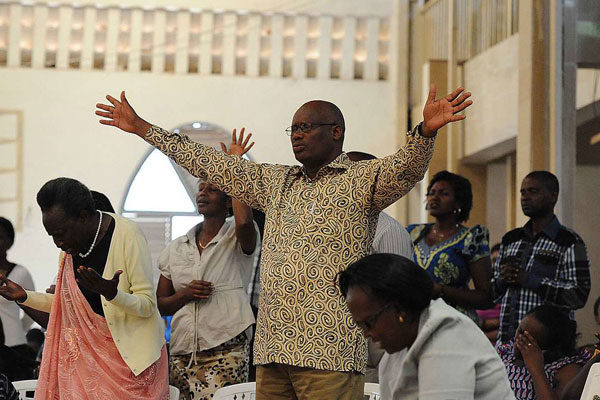
PHOTO: (AP/ Ben Curtis)
Pastors are usually hurt when a member decides to leave the church. Sometimes the pain is deep. It feels personal.
In addition to dealing with their own pain, pastors also have to offer explanations about these departures to members who ask about them. The pastors cannot just ignore the questions and walk away.
I was recently in a church where a church member informed me that he and his family would be leaving the church. It was none of my business, so I simply acknowledged his comment. But he insisted on telling me why he was leaving.
Every comment he made was about his needs, his preferences, how he wanted to do church. The worship style did not meet his needs. He was not getting fed. He wanted church to be more organic, whatever that means. He had three people he desired to please: me, myself, and I. He never made one comment about his own commitments to minister, to give, to serve, and to be fed.
Before the conversation was over, he proudly told me he and his family would leave quietly and peaceably. There would be no problems after they left.
Yeah. Right.
I spoke with the pastor a few weeks later. Multiple church members came to him to ask him why Bill (not his real name) and his family left. You can’t blame the inquiring church members. The family had been active in church, and they just disappeared. Bill left a mess for the pastor.
So, how do pastors and other church members respond to these difficult questions? I’ve seen the best responses have four key components, so here is the counsel I offer pastors.
- Be as transparent as possible. The inquiring church member can sense if you are withholding information. Perhaps, for good reasons, you can’t say everything. But offer as much information as possible. If there are perceived gaps in your explanation, the inquiring church member may fill those gaps with his or her imagination. That’s not good.
- Admit your own feelings. While the inquiring church member should not turn into your therapist, there is something healthy about pastors sharing their own pains. It would not make sense if the pastors were impervious to the pain such departures cause. It would raise more questions.
- Explain that such departures are common in most every church. Some inquiring church members should know that the circulation of the saints takes place in almost every church. We live in a consumer society, and many people simply jump from church to church. While this explanation does not minimize the pain, it does let the inquirer know your church does not have unique problems.
- Provide hope. If possible, conclude the conversation with hope. Point the inquiring member to the ways God is working in your church. While you acknowledge the pain and frustration of the departure, you also acknowledge the positive future God has for the church.
Some departures of members are done so with good reasons. There may be significant doctrinal issues. The member may have moved to a new neighborhood and wants to be able to invite his or her neighbors to a closer church. Perhaps the member is in the sad situation where his or her family broke up due to divorce, and both families in the divorce find it extremely difficult to be in the same church.
But, frankly, many church member exits are the result of self-centered motives. The church member is asking the unspoken question, “What have you done for me lately?”
Such situations are both sad and painful for pastors. But pastors should expect remaining members will have questions. Most of those inquiries are made out of concern and love for the church. Respond with transparency, facts, and hope. The painful situation will soon pass.
Until it happens again.
Originally posted at ThomRainer.com.

